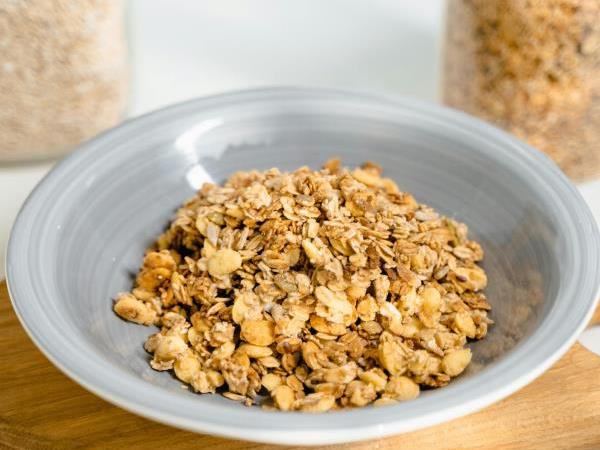Why are oats so effective? The key lies in their beta-glucans, special soluble fibers that act as a natural filter in the body. When consumed, they transform in the intestines into a gel-like substance that inhibits the absorption of cholesterol and slows the rise in blood sugar after a meal.
Oats and cholesterol: a natural solution for a healthy heart
Cholesterol is a fatty substance in the blood that the body needs, but too much of the so-called bad cholesterol (LDL) can increase the risk of heart and vascular diseases. Oats work by binding excess cholesterol in the digestive system and removing it from the body before it is absorbed into the bloodstream.
A study published in the American Journal of Clinical Nutrition showed that consuming 3 grams of beta-glucans per day can reduce LDL cholesterol levels by 5 to 10%. This means that just one cup of cooked oatmeal a day could contribute to a healthier heart.
According to the World Health Organization (WHO), elevated cholesterol is responsible for approximately 2.6 million deaths annually. Although there are various medications for cholesterol management, dietary changes such as incorporating oats can significantly reduce the need for them.
Oats and blood sugar: natural assistance for diabetes
For those dealing with diabetes or blood sugar fluctuations, oats are one of the best foods. Beta-glucans slow down the digestion and absorption of carbohydrates, meaning that blood sugar rises more slowly and steadily.
In a study published in the journal Diabetes Care, researchers found that consuming oats in patients with type 2 diabetes lowered blood sugar levels by 10 to 20% after meals. Additionally, those who regularly consumed oatmeal showed improved insulin sensitivity.
For comparison: after consuming a meal rich in simple carbohydrates like white bread or sugar, the average person experiences a 40 to 50% spike in blood sugar, while a fiber-rich meal like oatmeal only causes a 15 to 20% increase.
How much oats to eat for optimal results?
Based on research, the recommended daily doses of oats are as follows:
- For lowering cholesterol: 3 to 5 grams of beta-glucans per day (equivalent to about 50 to 100 grams of oatmeal).
- For stabilizing blood sugar: 1 to 2 servings of oats daily (approximately 30 to 60 grams of flakes).
For the best effects, it is recommended to consume whole grain oatmeal or oat bran, as instant versions often contain added sugars and less fiber.
Additional benefits of oats
Oats not only assist in regulating cholesterol and sugar but also offer numerous other benefits:
- Contain antioxidants such as avenanthramides, which reduce inflammation and protect blood vessels.
- Promote digestion and aid in issues like constipation and irritable bowel syndrome.
- Provide long-lasting energy due to complex carbohydrates and fiber.
How to incorporate oats into your diet?
- Oatmeal with cinnamon and nuts for breakfast.
- Sugar-free oatmeal cookies as a healthy snack.
- Adding oat bran to yogurt or smoothies.
Whether you want to improve heart health, stabilize sugar, or simply include more nutritious foods in your diet, oats are an excellent choice. Despite being a humble food, its health effects are remarkable, as confirmed by numerous studies and nutrition experts. So next time you are looking for something healthy and delicious, reach for oats...









 Would you like to be informed about news on the website?
Would you like to be informed about news on the website?

